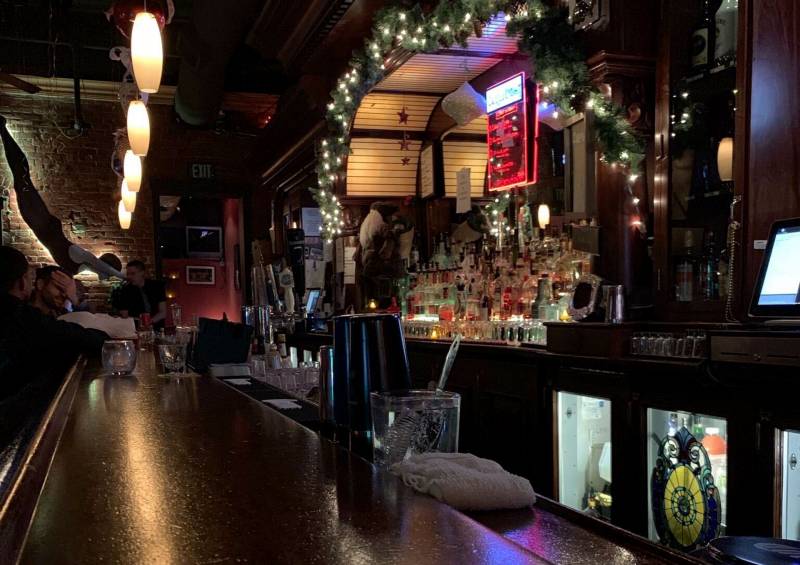Many restaurant bars in California – and bars that collaborate with restaurants – have found a way to stay open during the COVID-19 pandemic: selling “curbside” cocktails along with takeout food. It’s a combination required by law for to-go alcohol sales.
So what do you do when you run a straight-ahead bar that typically just sells alcohol? For some bar owners, it’s turning out to be a recipe for disaster.
Consider the story of Christos Louvis, who’s been running downtown San Jose’s Dive Bar with his parents since 2012.
“We always joke in the bar business that it’s recession proof,” Louvis said. “If anything, people drink more because they have more problems. They’re trying to just get out and enjoy themselves.”
Dive Bar prides itself on being a neighborhood joint: sports on the televisions, pool tables in the back and drink specials for the students a few blocks away at San Jose State University.
The bar has a Type 48 liquor license, which allows it to sell alcohol without food. Because of that, the bar can’t remain open under Santa Clara County’s shelter-in-place restrictions.

